Our live coverage of Israel's war in Gaza has moved here.
May 9, 2024 Israel-Hamas war
By Helen Regan, Leinz Vales, Rob Picheta, Helen Regan and Tori B. Powell, CNN
Biden "does not want certain categories of American weapons" used by Israel in Rafah, White House says
From CNN's Nikki Carvajal
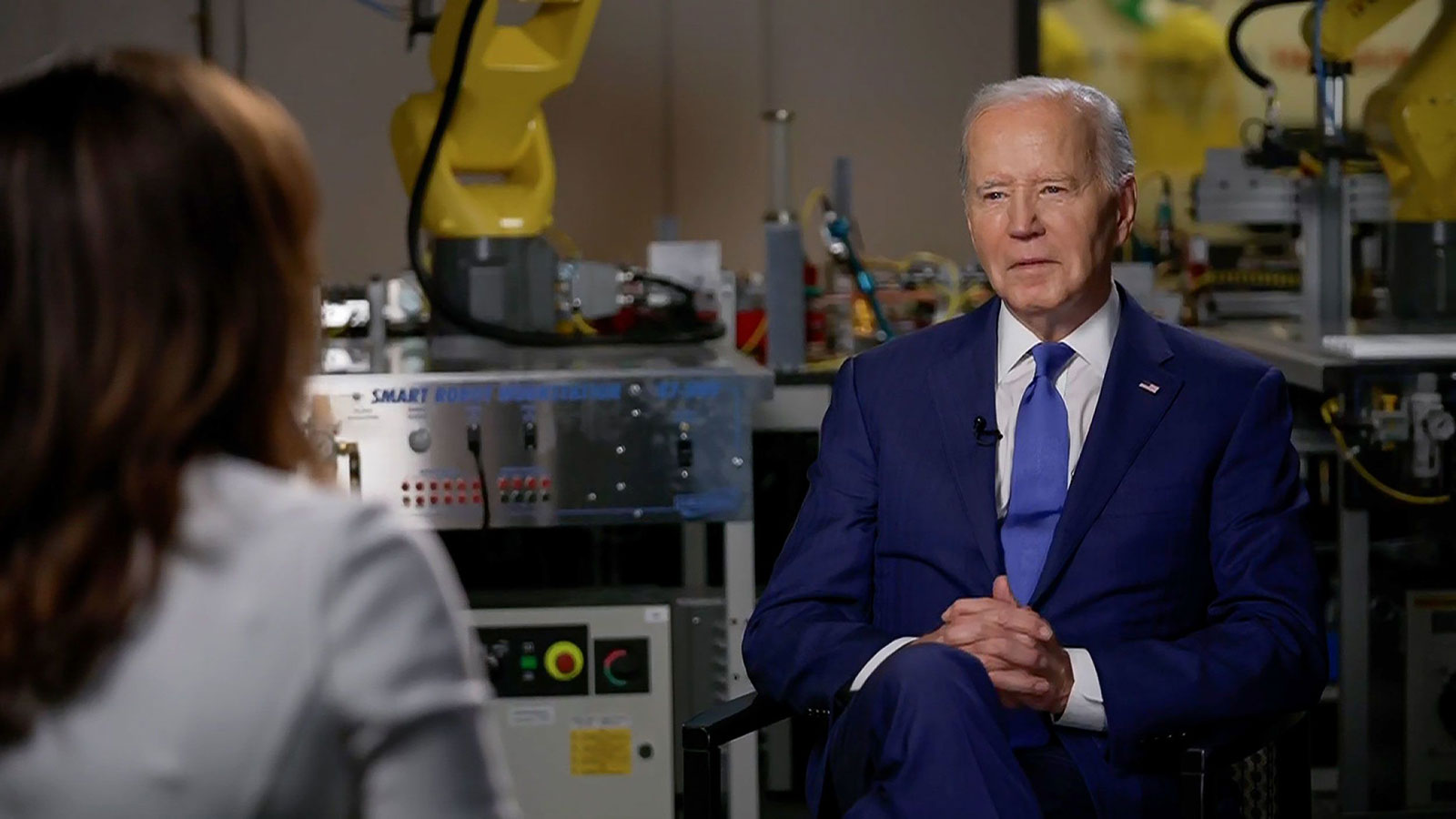
The White House on Thursday defended a decision to halt a weapons shipment to Israeland stood by President Biden’s comments to CNN’s Erin Burnett, saying the president believes Israel has “every right to defend itself,” but he does not support a major ground operation in Rafah.
“What the president made clear on CNN is that we do not want to provide material support to such an operation,” White House press secretary Karine Jean-Pierre told reporters aboard Air Force One. “We have held a shipment of high payload, unguided munition, and we discussed with Israel all concerns about their use in dense urban environments.”
For Biden, she said, “this is straightforward.”
“He will continue to provide Israel with all of capabilities it needs to defend itself, but he does not want certain categories of American weapons used in a particular type of operation in a particular place,” Jean-Pierre said. “More broadly, the president has directed his team with continuing to work with Israel to refine their strategy to inflict an enduring defeat on Hamas.”
She said, “smashing into Rafah” in Biden’s view would “not advance that objective.”
UNRWA commissioner-general accuses Israeli residents of setting UN headquarters in East Jerusalem on fire
From CNN's Hande Atay Alam and Kareem Khadder
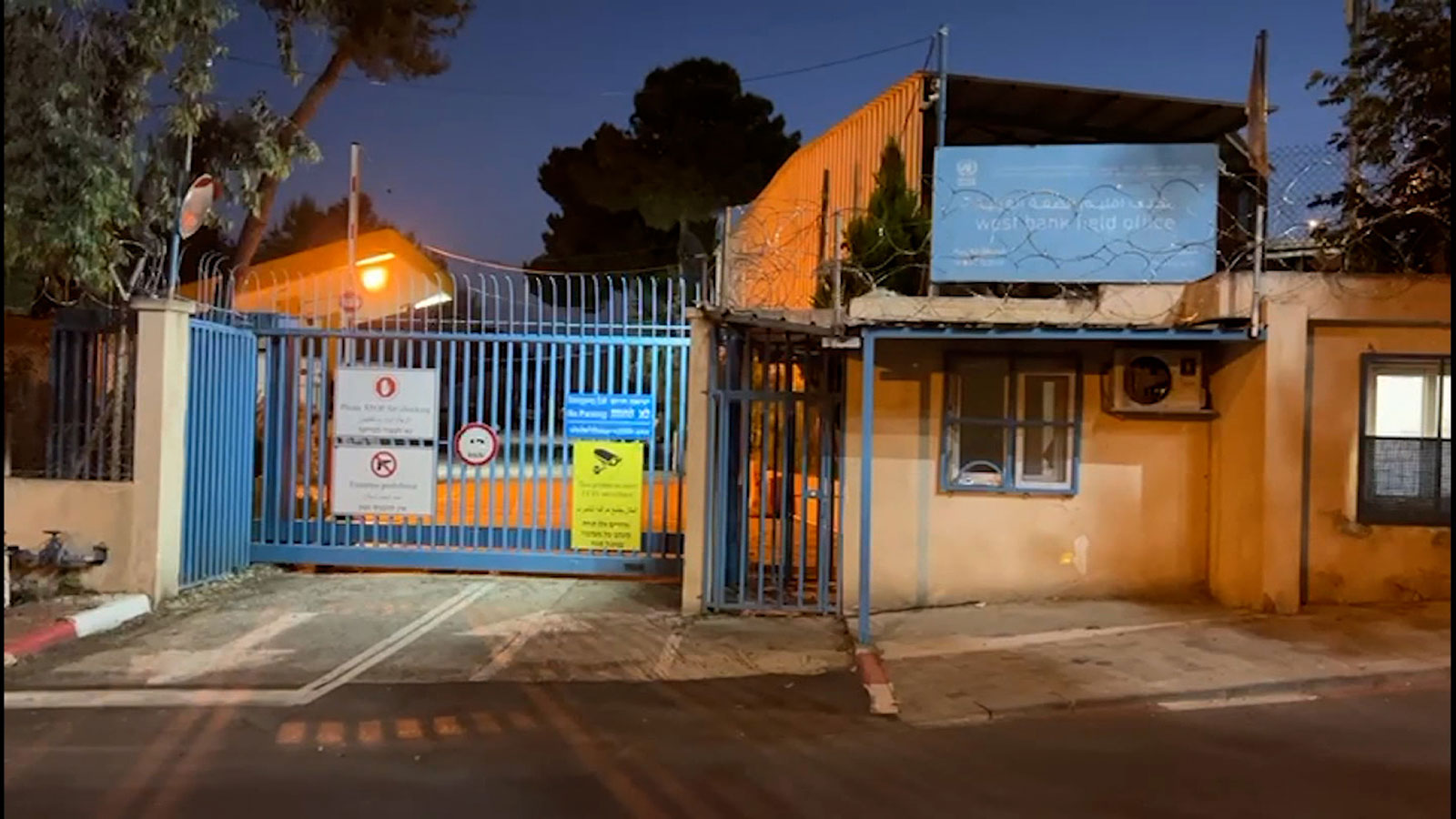
Philippe Lazzarini, commissioner-general of the United Nation’s agency for Palestinian refugees, accused Israeli residents of setting the UNRWA headquarters in occupied East Jerusalem on fire twice while UN staff were in the compound on Thursday.
Lazzarini said in a statement posted to X that there were no casualties among UN staff, however, "the fire caused extensive damage to the outdoor areas," and the staff had to put out the fire themselves as it took "Israeli fire extinguishers and police a while before they turned up."
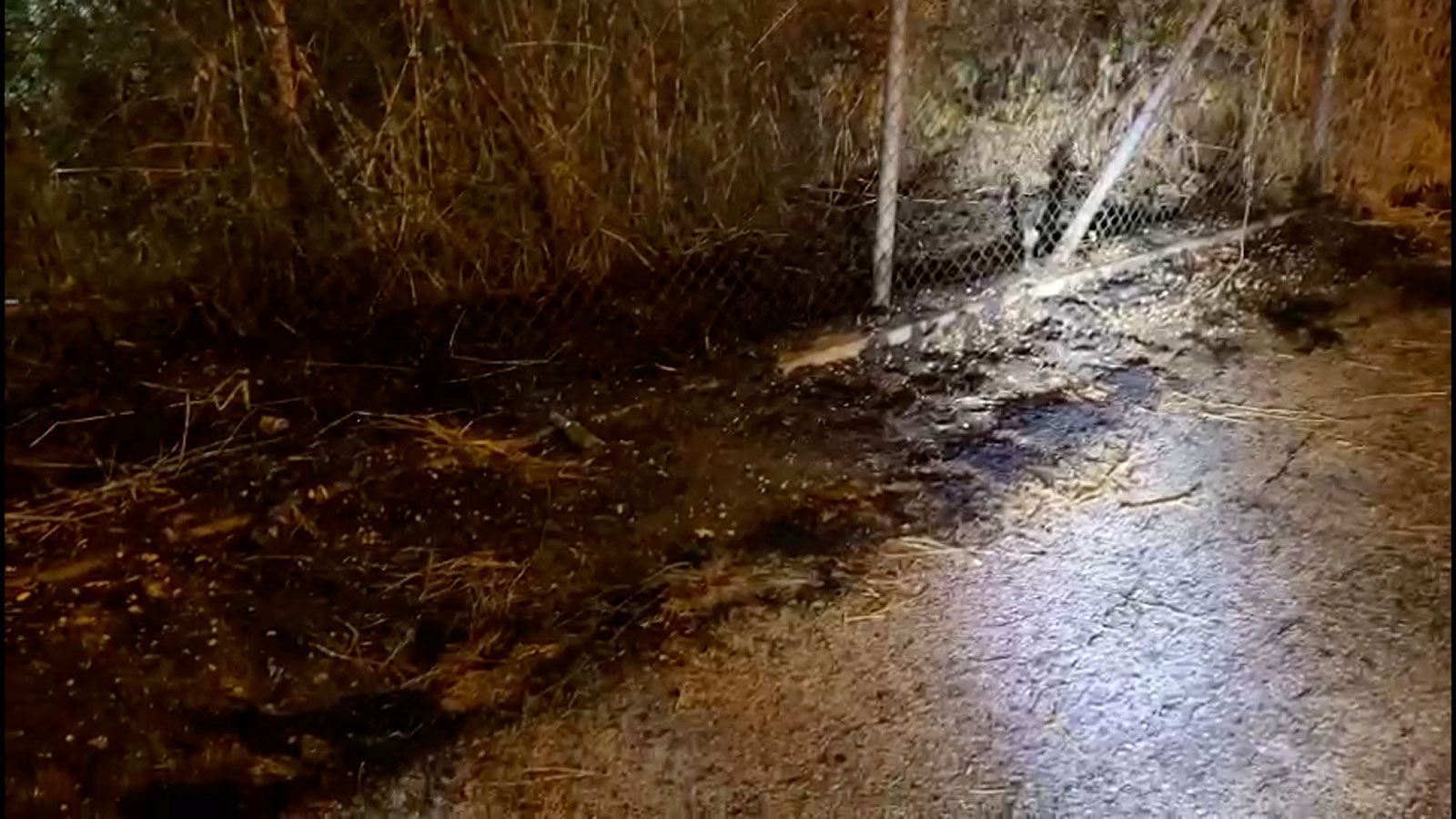
Lazzarini also posted a video of the UN compound with staff trying to extinguish the fire while people were chanting. Lazzarini wrote that a crowd accompanied by armed men were witnessed outside the compound chanting “burn down the United Nations.”
Several social media videos were posted on Israeli Telegram platforms on Thursday showing the UNRWA compound on fire, while in one video people are heard chanting repeatedly: "UNWRA is Hamas, UNWRA is Hamas."
CNN has asked the Israeli government for comment.
Lazzarini said this is the second incident in less than a week and the lives of UN staff were at a serious risk. He has since decided to close down UNRWA compound until proper security is restored.
The protesters became violent when demonstrators threw stones at UN staff and at the buildings of the compound, he said, adding that "over the past months, UN staff have regularly been subjected to harassment and intimidation."
"Our compound has been seriously vandalized and damaged. On several occasions, Israeli extremists threatened our staff with guns," he said.
Netanyahu says Biden made a mistake in delaying weapons shipment
From CNN's Jonny Hallam
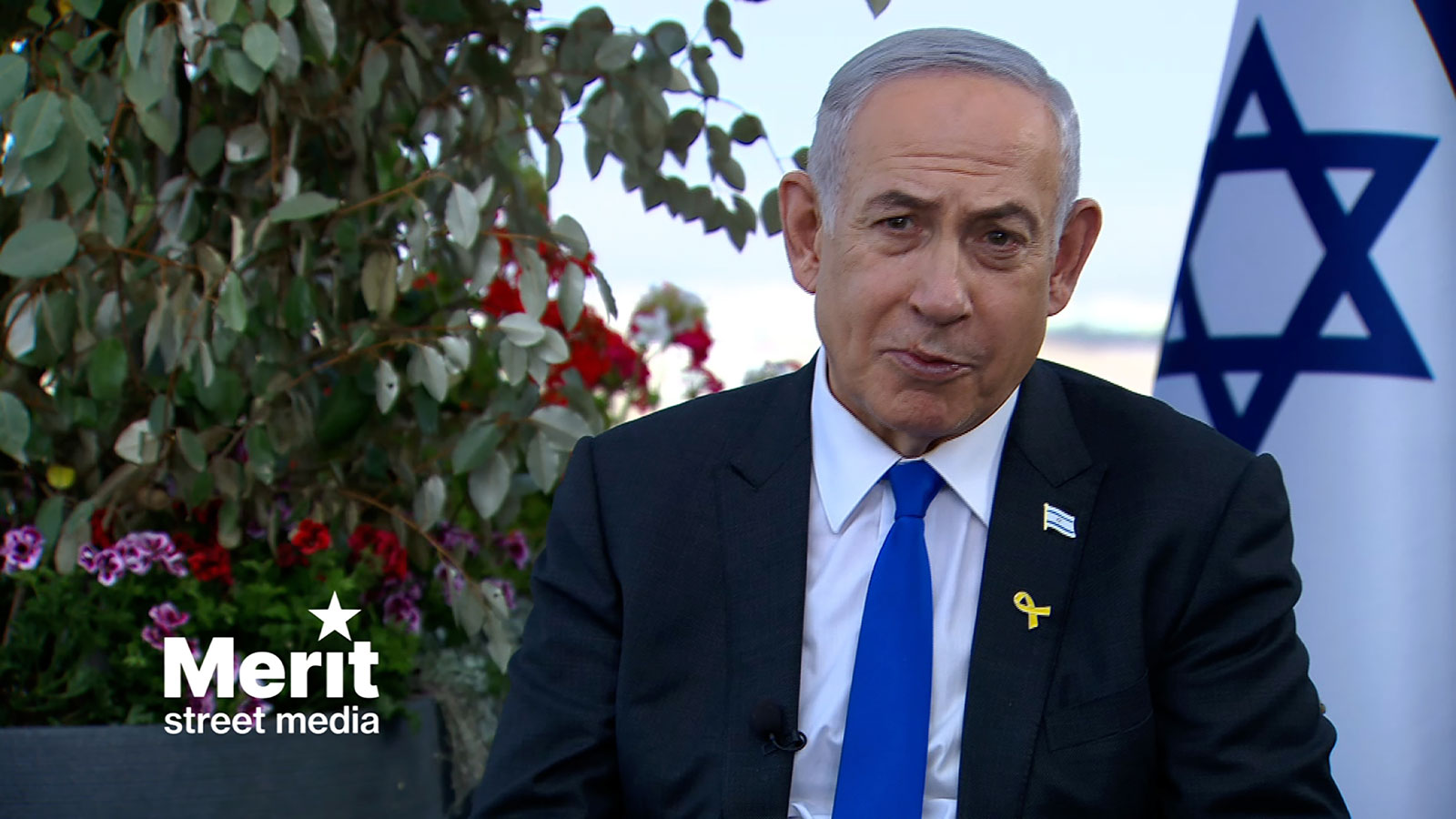
Israel Prime Minister Benjamin Netanyahu said US President Joe Biden made a mistake after the US paused sending a shipment of bombs to Israel so that they are not used in an invasion of southern Gaza city of Rafah.
In an interview with American talk show host Dr. Phil that will broadcast Thursday night, Netanyahu said Israeli forces are doing everything they can to let the people leave Rafah, and said he hoped the two leaders would find a way to overcome their differences.
"I've known Joe Biden for many years, 40 years and more. We often had our agreements, but we've had our disagreements. We've been able to overcome them. I hope we can overcome them now," Netanyahu said.
"We will do what we have to do to protect our country, and that means to protect our future. And that means we will defeat Hamas, including in Rafah. We have no other choice," Netanyahu added.
Ceasefire-for-hostage talks come to a pause. Here's what you should know
From CNN staff
There is a “pause” in the ceasefire-for-hostage talks in Gaza as Israel steps up its military operation in Rafah, two US officials have told CNN.
In its most recent counterproposal on Monday, Hamas demanded Israel agree upfront to an initial 12-week pause in fighting rather than six weeks, creating a major obstacle in the negotiations, three sources familiar with the deliberations tell CNN.
Israeli officials are staunchly opposed to agreeing to the longer request, as they believe it would be no different than agreeing to an effective end to the war.
Meanwhile, the discussions taking place in Egypt's capital Cairo over recent days have largely broken up with the departures of the Hamas and Israeli delegations, as well as CIA Director Bill Burns, who had spent the past week in the region trying to bring the two sides closer together.
The Qatari, Egyptian and American mediators will continue discussions.
Here are other headlines you should know:
Humanitarian crisis in Rafah:
- Rafah is "hanging on the edge of a precipice" and those left in the southern Gazan city — including 600,000 children — are the most vulnerable and living in "shocking" conditions, according to an official with the United Nations Children's Fund in Rafah.
- The UN’s main relief agency in Gaza (UNRWA) estimates that nearly 79,000 people have fled the southern city since Monday as an Israeli offensive in the city expands.
Israeli response to Biden's announcement:
- Israeli politicians exchanged pointed political jibes with each other on Thursday morning in reaction to US President Joe Biden's announcement on CNN that the US will halt its supply of arms to Israel if a ground incursion is launched into Rafah.
- Israeli Prime Minister Benjamin Netanyahu has said Israel is ready to stand alone if necessary as it continues its military campaign in Gaza, in what appeared to be an indirect response to the US' warnings over its actions in Rafah.
- Israeli Defense Minister Yoav Gallant warned on Thursday that Israeli forces “cannot be subdued,” following Biden's announcement.
- Israel Defense Forces (IDF) spokesperson Daniel Hagari says the Israeli military has the weapons it needs for the missions it is planning in Gaza. However, a halt in US weapons shipments may "significantly impair" Israel's ability to "achieve military objectives," the Israeli ambassador to the UN said Thursday.
Humanitarian aid:
- No aid has entered through Gaza's southern crossings in two days, the World Food Programme said Thursday, as fears grow that Israel's movements in Rafah will further stifle efforts to get food into the enclave.
- Also, the Kerem Shalom crossing into Gaza from Israel is closed for a fourth consecutive day, according to the spokesperson for the enclave's Crossings Authority. There are conflicting reports on the status of the crossing, which Israel closed after it was hit by at least 10 rockets on Sunday, killing four Israeli soldiers, according to Israel's military.
- And, the US will begin delivering aid to Gaza through a military pier "in the coming days," a Pentagon spokesperson told CNN on Thursday.
Developments on the ground:
- The Israeli military detected a number of hits in northern Israel directed from southern Lebanon on Thursday, as tensions over Israel's war in Gaza spill into the wider region.
The US faces obstacles getting aid delivered to Gaza after finishing pier construction
From CNN's Natasha Bertrand, Oren Liebermann and Alex Marquardt
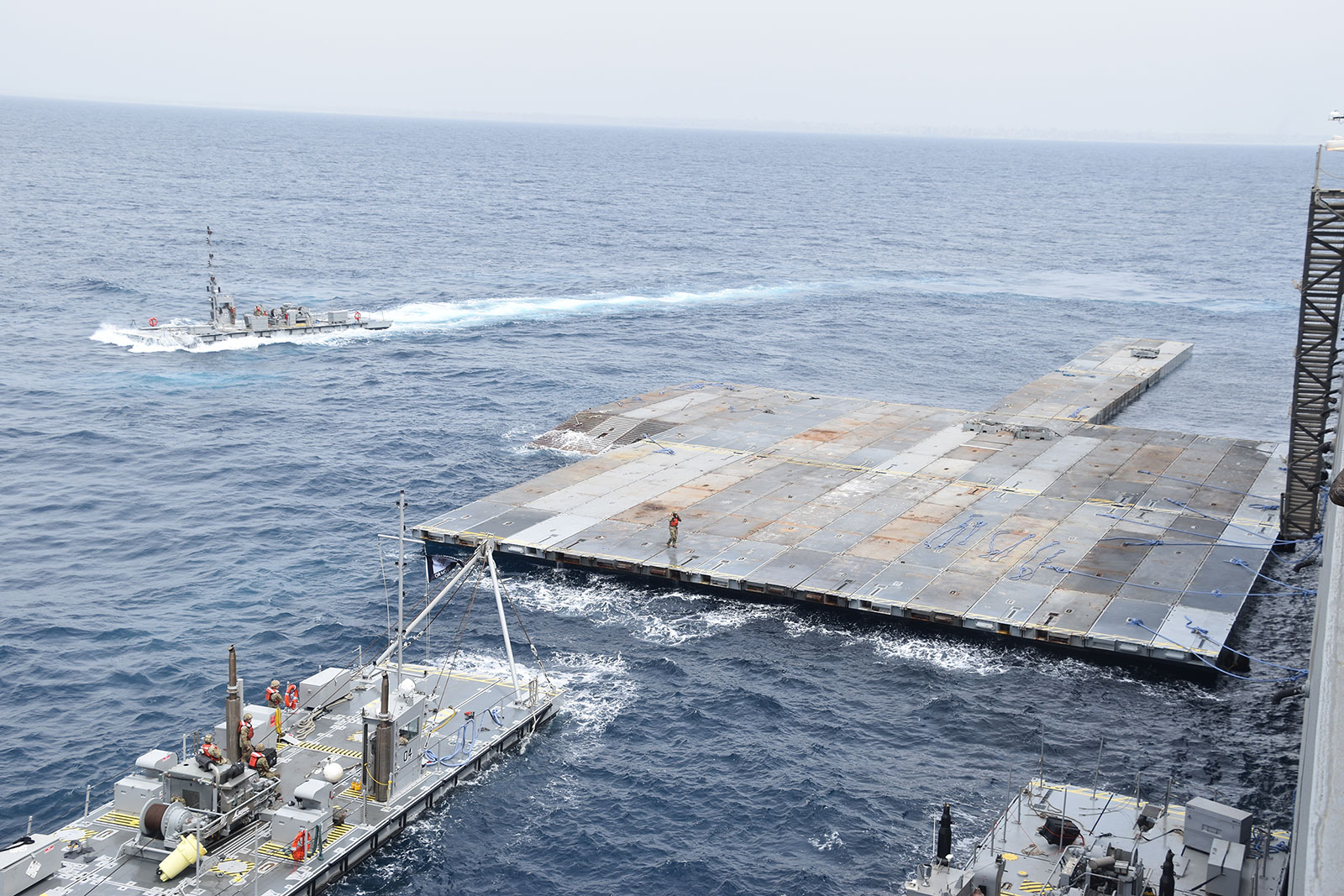
Desperately needed humanitarian aid for Palestinians in Gaza will — at least for the next few days — remain sitting off the coast of Gaza on an American Navy cargo ship, as the US continues to face obstacles to getting the floating pier it constructed in place and operational in the eastern Mediterranean.
The pier and causeway, known as Joint Logistics Over the Shore, or JLOTS, will ultimately be used by the US, its allies and aid groups to get aid into Gaza by sea from Cyprus.
But the system had to be moved to the Port of Ashdod last week due to heavy seas, and it still hasn’t left.
Even when JLOTS becomes operational, the weather and sea conditions may severely limit the ability to use the floating pier.
It can only be safely operated in conditions with a maximum of 3-foot waves and winds less than about 15 mph, according to a 2006 Naval War College paper on the systems limitations. A prediction of sea conditions from Israel’s Marine Data Center shows waves are often at or near that 3-foot limit in the area.
“JLOTS operations, which must take both safety and throughput requirements into account, must often wait for favorable weather and sea state conditions,” the authors wrote.
A defense official confirmed to CNN that the limitations on the pier system are accurate.
“The bottom line – heavy seas do have an effect on the ability to execute the JLOTS mission,” the official said. If winds or waves are stronger, loading and unloading using the JLOTS pier becomes dangerous.
The US is still aiming to move the system into place and begin the operation “in the coming days,” a Pentagon spokesperson told CNN on Thursday.
Hamas’ demand that Israel agree upfront to a 12-week ceasefire emerged as a major obstacle in negotiations
From CNN's MJ Lee, Alex Marquardt and Jeremy Diamond
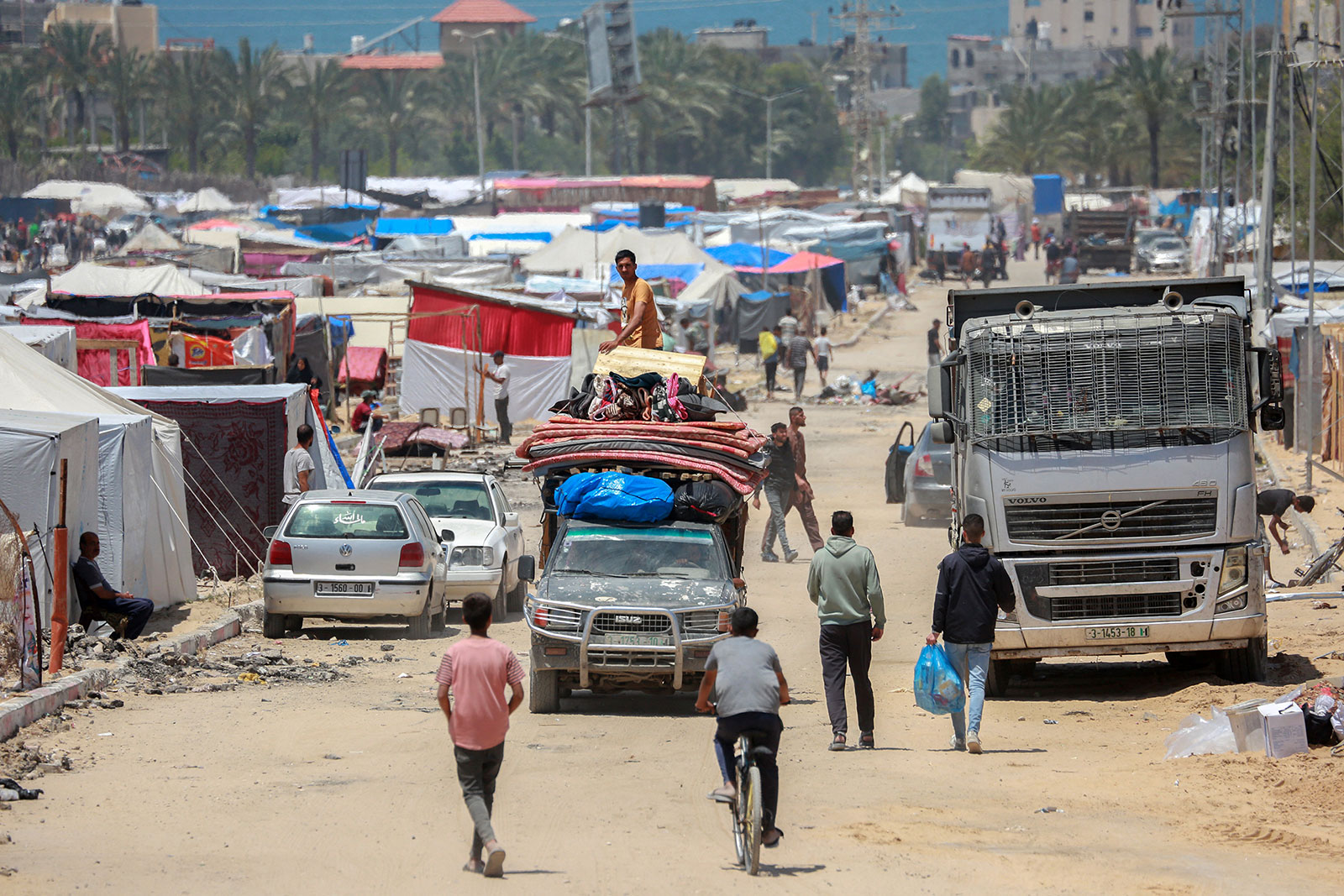
In its most recent ceasefire and hostages counterproposal on Monday, Hamas demanded Israel agree upfront to an initial 12-week pause in fighting rather than six weeks, creating a major obstacle in the negotiations, three sources familiar with the deliberations tell CNN.
Israeli officials are staunchly opposed to agreeing to the longer request, as they believe it would be no different than agreeing to an effective end to the war. One senior Biden administration official said Israel has made clear that it wants to reserve the right to dismantle the four remaining Hamas battalions in Rafah.
"Need to maintain flexibility to continue the war to do that," the official said, adding that Israel couldn’t do that if the first six-week ceasefire period simply flowed into the second phase, when a "sustained calm" is supposed to be restored in Gaza, according to the Hamas proposal.
At an earlier point in the talks, Hamas agreed to engaging in negotiations during the first six weeks of a pause in fighting — talks that would require that the parties first reach terms before the second phase of the truce of an additional six weeks could go into effect, sources said. They described Hamas’ new demand as a clear reversal.
Israeli officials privately recognize that a months-long ceasefire would make it difficult to restart the war and send Israeli troops back into Gaza, effectively ending the war. Prime Minister Benjamin Netanyahu is loathe to make such an explicit commitment upfront, with several of his right-wing governing partners having threatened to collapse his government if the war ends without a major ground offensive in Rafah and the dismantlement of Hamas.
Israel is also taking serious issue with committing to 12 weeks of pause in fighting upfront before any of the hostages are released, said an Israeli source familiar with the talks. Sources said the wording in the agreement of how phase one of the truce would transition to phase two will be key to securing Israel’s agreement.
Hamas’ request appears to be confirmed in a document obtained by CNN, which states:
“All measures in this [first] stage, including the temporary cessation of mutual military operations, relief and shelter, and the withdrawal of forces, etc., will continue in the second stage until a sustainable calm is declared.”
The senior Biden administration official added that the change in Hamas’ position may be due to its negotiators being out of sync with the group’s ultimate decision maker, Yahya Sinwar, who is believed to be underground in Gaza.
CNN reported Thursday that there is now a pause in the ceasefire talks while Israel’s military operation in Rafah is taking place, according to US officials.
CIA Director Bill Burns’ departure from the region after days of intimate engagement in the negotiations "doesn't mean we're giving up hope," White House spokesman John Kirby said Thursday.
Satellite imagery shows significant increase in Palestinians fleeing Rafah's tent camp cities since May 7
From CNN's Paul P. Murphy
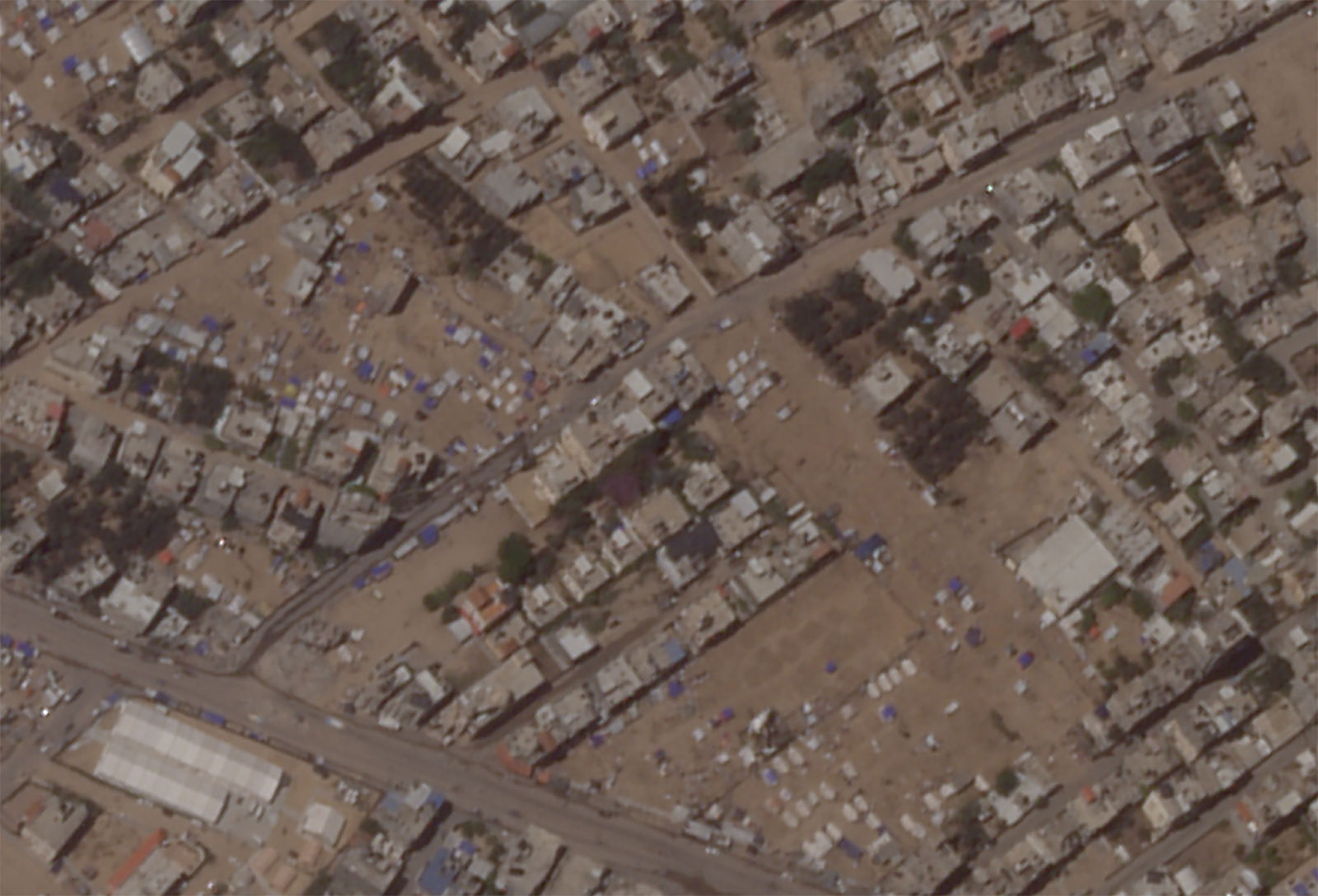
In the last 72 hours, Palestinians have begun to flee Rafah's massive tent cities in large numbers, new satellite imagery from Planet Labs shows.
CNN has identified several camps — including the main camp in central Rafah that housed thousands of tents — which have significantly decreased in size between Tuesday and Wednesday.
Although some camps in Rafah did see a decrease in population between Sunday and Tuesday, the majority of camps identified by CNN saw their greatest declines since Tuesday.
On Monday the Israel Defense Forces (IDF) told people in Eastern Rafah to "evacuate immediately" toward Al Mawasi and other areas north of Rafah. Many people have fled further north than Al-Mawasi, heading for areas in central Gaza that have more infrastructure.
Some of the tent camps had been in United Nations schools, others in open fields, or along roadways for months. Now, a significant number has vanished, but many remain in the camps despite IDF orders to leave.
The United Nations Relief and Works Agency for Palestine Refugees in the Near East (UNRWA) spokesperson told CNN Thursday evening that they estimate 80,000 refugees have fled Rafah, but noted that the situation is extraordinarily fluid. The IDF estimates that some 150,000 people have left areas of eastern Rafah after being instructed to evacuate at the beginning of the week.
The IDF began conducting ground operations on Tuesday, after seizing the Gaza-side of the Rafah border crossing. Those operations are ongoing, but are largely focused in the easternmost sections of Rafah — just over a mile away from the closest camp CNN identified.
Humanitarian aid worker injured by shrapnel in Rafah, organization says
From CNN's Jennifer Hansler
A humanitarian aid worker from Mercy Corps was injured by shrapnel from a nearby explosion in Rafah on Wednesday, the organization said on Thursday.
The worker was not in the evacuation zone of eastern Rafah, the organization said, "underscoring that no one in Rafah feels safe and nowhere in Gaza is safe." The worker was treated at a hospital and released.
Additional aid workers from Mercy Corps say food prices are skyrocketing throughout Gaza. Transportation out of Rafah is scarce amid bombardment and the seemingly impending large scale operation by Israeli forces and prices for the few transportation options left have also soared.
There are also concerns that the bombardments will damage critical infrastructure like water stations.
In testimony shared by Mercy Corps, workers described the fear brought on by the uncertainty of their situation — a feeling that has only been amplified by Israeli bombardments. One said that they worried they would not survive the night, so they hugged their infant child closer.
Another spoke of the anxiety of facing another displacement within Gaza, having accumulated a number of things over their past months in Rafah. They debated whether to leave those things behind in order to be able to evacuate more quickly.



